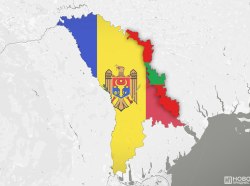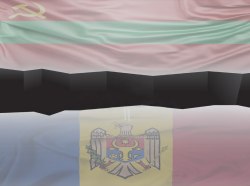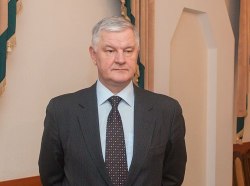«Now Pridnestrovie's price formation body is rather a statist than a regulator on the market," said the deputy prime minister on legal control and cooperation with public authorities on Radio 1
The topic of today's Radio 1 morning show was the rejection by the Supreme Council of the draft laws submitted by the president as part of legislative necessity. The key issues related to the legislators' slowness were discussed by the deputy prime minister on legal control and cooperation with public authorities, Alexander Kisnichan, and the prosecutor of the republic, Alexnder Deli.
According to Alexander Kisnichan, the Price and Antimonopoly Committee has no leverage to regulate price formation today. «This agency monitors the price level, but it cannot in any way influence or firmly respond to it," he noted.
The deputy prime minister emphasised that in this situation the government must more closely monitor the prices for socially significant goods.
«Back two years ago the government submitted the corresponding bills, but they have not been considered so far. That is why this April the president resubmitted these bills as part of legislative necessity, suggesting MPs should put aside all side issues and address the problems requiring urgent solutions. However, the Supreme Council has not taken any decision on these bills since April," said Kisnichan.
Regarding the problems of price formation, Alexander Kisnichan also touched upon a rouble rate issue. As is known, the rate of the Pridnestrovian rouble is fixed to the US dollar value and remains stable. The government's lack of an explicit mandate to control price formation is the main obstacle for the depreciation of the Pridnestrovian rouble.
«In Russia [pricing] has been monitored in an explicitly firm way, but their authorities have the corresponding powers. Our authorities have rather limited powers," said Kisnichan.
He noted the rouble depreciation would lead to chaos if the government did not control the price level.
Besides the legislative necessity bills, a draft of the tax code, which was developed by the government for over a half year, was submitted to the Supreme Council in late August.
«Taking into account the importance of this draft law, we hope MPs realise this document must be considered as soon as possible," noted Kisnichan.
Pursuant to the Constitution, the tax code may come into effect since 1 January 2016 only if it is approved by the Supreme Council and published until 1 October 2015. Therefore, the minister believes, MPs have no more than 20 days left to consider this important document.
«We hope we'll pull off success. I think we are all interested in revising the existing relations in this sphere and creating fairer conditions for industry taxation," concluded Alexander Kisnichan.








